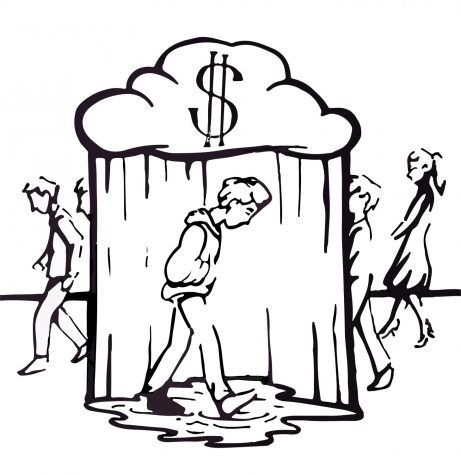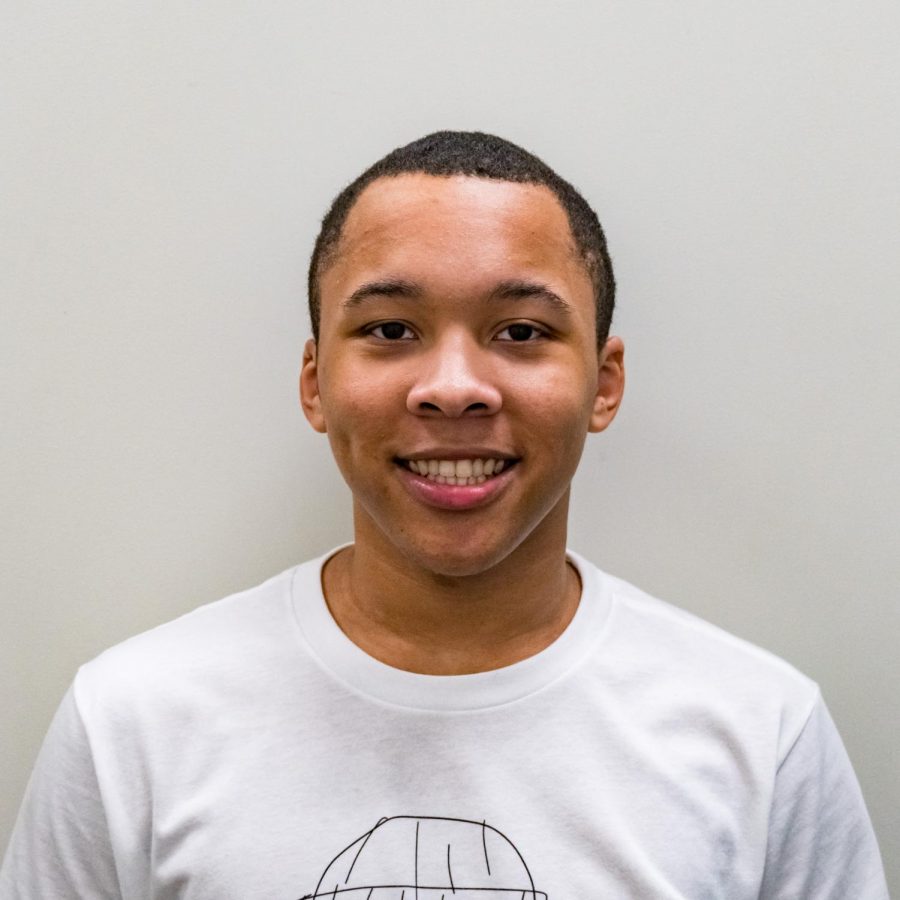The Labor of Student Loans
September 20, 2018
When asked to describe NYU, one word comes to mind: expensive. Whether you’re paying out of pocket or through loans, $75,000 a year is a lot of money to spend towards higher education. Many students justify this cost based on future career prospects but some students have to bear the graver consequences of taking on this cost.
To understand how financial constraints affect a person’s experience at NYU, I sat down with a current NYU sophomore dealing with the stress of managing academics, friendships and loans. This person has chosen to remain anonymous for privacy reasons. As a Drama major in the Tisch School of the Arts, the student faces sarcastic comments regarding what she plans to do after college. These comments are a point of insecurity for her because, in practical terms, she’s taking out approximately $70,000 in loans each year to follow her passion.
Due to her outstanding debt, financial burdens are frequently on her mind.
 Illustration by Sophia Di Iorio
Illustration by Sophia Di Iorio
“I try not to let it affect my personal relationships and studies,” she said. “It is something that I have to think about, however, I try to turn that energy into the motivation to make something for myself because I have so much at risk.”
The optimism is not always present, though.
“I think it’s unfair to the people who have the same passions and desires, if not even more, and can’t pursue it just because of the money aspect,” she said. “I know so many smart people who have to go to community college just because they don’t have the money or can’t take out loans. Community college isn’t bad. It’s just that some people have the potential to go forth and really make a difference in the world, but they can’t because they can’t afford it.”
Financial struggles similar to what this Tisch student experiences are a reality for many, including those at NYU. The increasing cost of attendance at higher education institutions continually places disadvantages upon bright students without the means to pay for education, resulting in what can be considered as a class barrier. The sooner we acknowledge this, the better.
As students at a top-ranking private university, it can be difficult to contextualize the world beyond the constraints of our nonexistent campus. NYU is far from a shining example of economic diversity. The New York Times reports that 62 percent of NYU’s students come from the top 20 percent highest-earning households in the country, while the bottom 20 percent makes up only 6.1 percent, comparatively.
In terms of financial aid, NYU states they offer an average package of $37,000 a year. However, this still leaves a considerable amount left to be paid. For an institution that managed to raise their endowment by more than $500 million last year, I believe it is feasible to curate a more fiscally diverse student body. NYU has recently announced that the NYU School of Medicine would now be tuition free. This is a step in the right direction, and they have the ability to address similar issues in undergraduate education and they should.
Financial responsibilities and university culture hinder low-income students from attending college, according to a recent article by Forbes. The lack of belonging and isolation that these low-income students face substantiates how higher education institutions under-represent and devalue low-income students in comparison to their middle to upper-class contemporaries.
In a world where higher education and specialization are considered prerequisites for entry-level positions at an increasing number of firms, the nation’s most financially strained are not being equipped with the tools for success in the same volume as their peers. The institutions which we pride ourselves on going to have the means to offer an equitable education to an array of different students, regardless of financial standing.
“At What Cost?” is a testimony-based column which takes the lived experiences of NYU students and connects them to broader societal challenges. As much as we’d like to view NYU as a utopian “safe space,” our fellow students are forced to make difficult choices every day — this is our opportunity to unpack them.
Dyshere Logan is a sophomore at the Stern School of Business studying Finance and Sustainable Business. Email Dyshere at [email protected].
Opinions expressed on the editorial pages are not necessarily those of WSN, and our publication of opinions is not an endorsement of them.
























































































































































